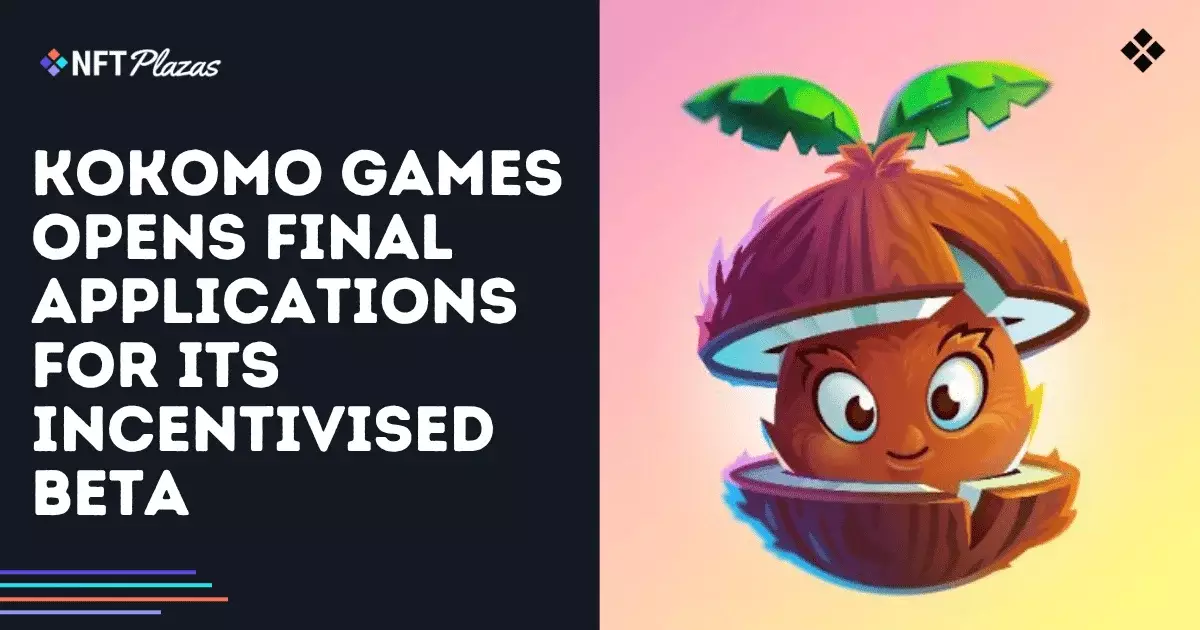Kokomo Games’ recent announcement of their incentivized beta test feels more like a marketing stunt than a genuine stride toward revolutionizing gaming. The emphasis on “early access” and “pre-funded accounts” is a common tactic to generate buzz, yet it obscures the reality that these so-called groundbreaking features are merely superficial. Having experienced countless beta tests in the blockchain gaming space, I see little real innovation—just more noise, hype, and inflated promises. The idea of a browser-based mini-game platform that claims to integrate NFTs, tokens, and Web3 functionalities is intriguing on paper, but history shows such initiatives rarely deliver meaningful gameplay or user benefits in a sustainable way.
The core issue lies in the gaping disconnect between what Kokomo promises and what it can substantively deliver. Featuring four rudimentary games—Snake, Chess, Blackjack, Arrow Racer—these are not exactly trailblazers. They are well-worn classics repurposed with blockchain features, which hardly constitutes a revolutionary leap in gaming. The hype surrounding token rewards and NFTs distracts from the fundamental question: Will this infrastructure foster engaging, competitive, and fair gameplay, or is it just a vehicle for speculative trading and superficial digital collectibles?
Tokenization, NFTs, and the Mirage of Utility
Kokomo’s focus on NFT integration, especially with its Kokomons collection, epitomizes the superficial attempt to fuse blockchain tech with gaming. While providing utility like reduced in-game fees or access to exclusive modes sounds beneficial, these are ultimately hollow perks layered within an ecosystem driven by hype rather than established demand. This approach risks turning gaming into a marketplace, where the real currency isn’t skill or entertainment but the ability to leverage scarce digital assets for monetary gain.
The deployment of a native token, $KOKO, aligned with a token sale and ongoing airdrops, further exemplifies this trend. It feels more like an entry point for speculators rather than gamers seeking meaningful entertainment. The core question is whether this token will foster genuine user engagement or merely serve as a speculative vehicle. Historically, projects that lean heavily on tokenomics often become unstable, driven by market whims rather than genuine user growth, and Kokomo’s ecosystem risks falling into this trap.
The Reality Behind Blockchain Gaming’s Illusory Promise
Beyond the surface, Kokomo’s approach underscores a broader problem: the blockchain gaming industry’s tendency to prioritize hype over substance. Despite raising significant capital from notable investors like SoftBank and industry influencers such as Steve Aoki, these lofty ambitions frequently falter when confronted with realities of game development and user retention.
The promise of seamless, rewarding gameplay intertwined with blockchain mechanics often battles with inherent technical limitations and user experience hurdles. By providing pre-funded test accounts, Kokomo manipulates the perception of progress, but it’s clear that these are just early prototypes. Real engagement requires more than superficial incentives; it demands compelling gameplay, strong social features, and sustainable economies—none of which are convincingly addressed here.
Furthermore, the industry’s obsession with NFTs as a core utility is troubling. It commodifies rather than enhances gaming experiences, turning players into investors and traders instead of enthusiasts. The focus should shift from digital collectibles as status symbols to tangible, entertaining content that appeals to a broader demographic. Kokomo’s current strategy seems to prioritize wallet activity over genuine community growth.
Can Blockchain Gaming Ever Achieve True Legitimacy?
Looking beyond the hype, the question remains: can blockchain gaming genuinely evolve into a respected form of entertainment, or will it inevitably remain a niche for speculators? From my critical perspective, unless projects like Kokomo fundamentally rethink their approach—moving away from superficial NFTs and token-driven incentives towards authentic gameplay—the industry will continue to struggle with skepticism and disillusionment.
An honest reevaluation of what value blockchain can bring to gamers is needed. Instead of fleeting promotions like social media giveaways and beta tests designed to inflate numbers, developers should prioritize creating engaging, accessible, and honest gaming experiences. Only then can the promise of blockchain’s potential—true ownership, decentralization, and user empowerment—become a reality, rather than a passing fad fueled by hype and misplaced optimism.
Kokomo’s initiative, while ambitious on paper, exemplifies the superficiality that has plagued blockchain gaming projects for years. Without tangible innovation and a genuine focus on user experience, the industry risks becoming a bubble waiting to burst, with hype cycles that ultimately dilute its credibility and long-term viability.

















